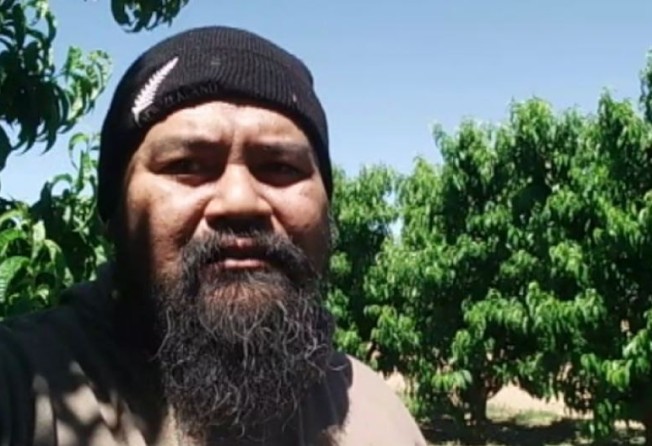Undercover Malaysian reporter tells Australian slavery inquiry of ‘brainwashed’ foreign fruit pickers being trapped in debt
Malaysian reporter Saiful Hasam says workers on Victoria farms paid a pittance and kept in overcrowded homes

A Malaysian journalist who went undercover to expose exploitation in Victoria’s fruit picking industry said workers were “brainwashed” with religion and trapped in debt to keep them on farms.
Saiful Hasam, a reporter with Utusan Malaysia, gave evidence to a modern slavery inquiry on Monday, speaking of the “thousand sad stories” he heard during his two weeks at a fruit farm in Swan Hill, in northern Victoria.
Fruit pickers, often working illegally, were lured to Australia with promises of high incomes, Hasam said. When they arrived, they were paid a pittance, kept in overcrowded homes with exorbitant rent and effectively trapped in debt bondage.
Hasam warned the inquiry the exploitation was still occurring on a significant scale.
Hasam arrived in Australia last year, posing as a fruit picker who was prepared to work illegally.
He was paid A$110 (US$85) for 24 hours work over four days. About $80 went to pay rent in a small home he shared with 11 other workers, mostly from Malaysia. He was short-changed $10 by his contractor, leaving him with just $20.
“The story is basically the same, the sad story,” Hasam said.
“A thousand sad stories, they are basically the same story. They are struggling. For the newbies, they are very struggling and keep thinking: ‘Today I have to settle how many trees just to pay rental. After finish that part, then we are struggling to collect enough money for the food’.
“Sometimes, based on my experience, it’s just enough for food and rental … This is grossly unfair for the workers, because they are very hard-working.”
Hasam helped Fairfax Media in its expose of the industry last year, which built momentum for the introduction of a modern slavery act in Australia.
An inquiry is examining how such legislation would operate and Hasam travelled from Malaysia to give evidence on Monday.
Hasam was asked whether the workers raised concerns about their conditions with their employers.
“Based on my observations, they are being brainwashed using religion,” Hasam said.
“The house leader always say: ‘OK, please be patient, this is your test, coming to Australia, and one fine day you will get enough money. This is normal for everybody, and even me myself go through this process.’”
The inquiry’s interim report advocated the creation of a modern slavery act and recommended the creation of an independent anti-slavery commissioner, who would have the power to “consult, advise, report on and make recommendations”.
In August, the justice minister, Michael Keenan, announced plans to impose a legal requirement for companies with a turnover larger than $100 million to file a public modern slavery report each year.
Earlier on Monday, Tania Chapman, the chairwoman of the industry body Citrus Australia, said the idea of enslavement, as a mother of five, made her “sick to my stomach”.
But she warned against blaming farmers and growers for the practice, and said the majority were doing the right thing.
“We have unfortunately seen people abuse the 457 visa scheme only to the detriment of our country’s other growers that rely heavily on this type of labour,” Chapman said.
“This abuse of power has left a black mark on our industry with both media and outside organisations labelling farmers as complacent or indeed negligent when it comes to supporting the harvest labour force, with words such as slave labour being introduced.”
She said often the growers paid the right amount to the business employing the workers but it was not passed on.
“Then the grower, and we as Australians, are portrayed as doing the wrong thing and using cheap import labour over Australians,” Chapman said.
She said introducing new legislation and regulation would not capture those doing the wrong thing, who would continue to find loopholes. She called for greater education of labourers, to ensure they knew their rights and responsibilities, and understood Australian immigration law.
“Some responsibility does sit with each and every person living and working in Australia,” she said.